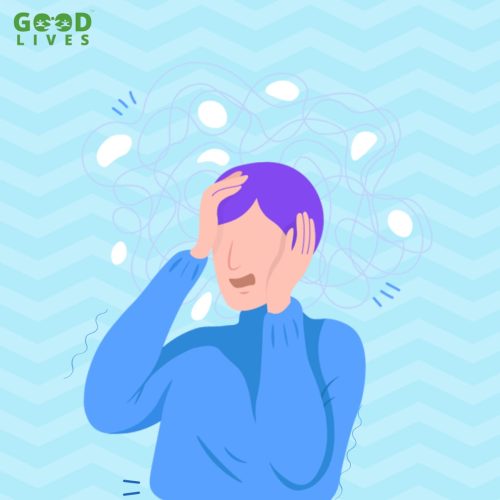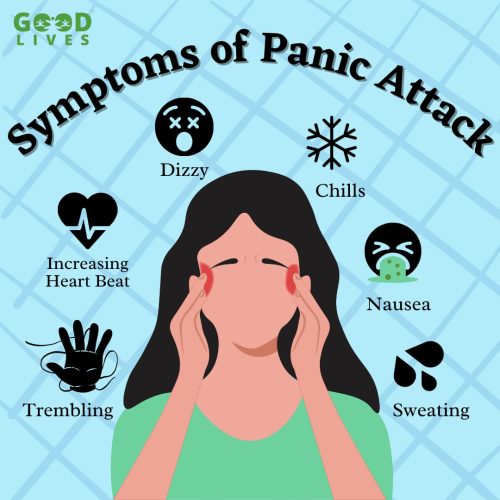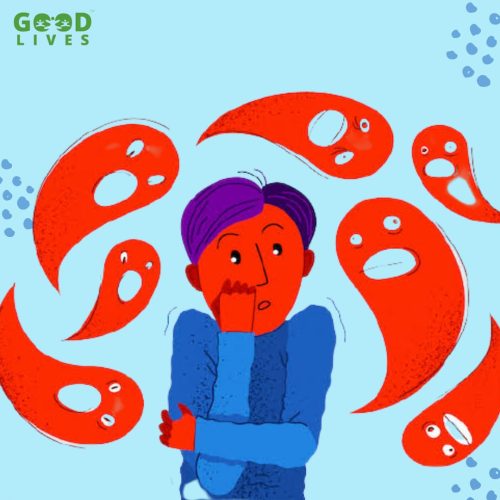
What is Panic Attack?
Your brain works in the same way that a computer does. There is a finite processing capacity, and when that capacity reaches its limit, it can lead to panic attacks.
It doesn’t matter if it’s your first or tenth panic attack or you’ve observed one go through one. Nobody wants to go through that experience again.
Panic attacks are sudden feelings of intense fear that something bad is about to happen and there is some imminent threat or danger. These ideas are so severe that they cause physical symptoms like heart pounding, dizziness, or shortness of breath. Having symptoms might feel as if you’re having a heart attack or even dying. The attacks are unpredictable which can cause anxiety about when the next attack is going to happen.
The attacks are not life-threatening but the experience can shake your life in some way panic attack treatments are also available. In the United States, up to 11% of people have a panic attack each year. Panic disorder affects 2% to 3% of people in the US.
Symptoms of a Panic Attack

Symptoms peak within the first 10 to 20 minutes, but some might last hours. According to the
diagnostic and statistical manual for mental disorders (DSM), the 5th edition says in order to identify it, a person needs to have an abrupt onset of 4 of the following 13 symptoms:
- Pounding heart rate
- Chest pain or tightness
- Sweating
- Trembling or shaking
- Shortness of breath
- Nausea
- Dizziness
- Chills
- Numbness or tingling sensation
- Feelings of choking
- Feelings of being detached from oneself
- Fears of losing control
- Fears of dying
Did you know?
Panic attacks can occur while you’re asleep and the cause of why they happen during nighttime is unknown but it seems like they’re manifestations of stress and they’re pretty common, the majority of people who have been diagnosed with panic disorder have probably experienced nocturnal panic attacks.
Symptoms to Panic Attack Feel Like?

You suddenly find yourself unable to breathe, your palms will sweat, your chest will feel heavy, your heart will pound as if it was competing with Usain Bolt, your vision will be a tunnel and you will feel as if you are having a heart attack, your mouth will stretch and the tickling fear will make you believe you are about to die. You know you don’t want to die; you were enjoying a typical day talking to your friend when this happens, which is very odd, right?
The hardest aspect of having even a single panic attack is the intense fear that it will happen again. They are a collection of physical and mental health symptoms that occur at the same time. Because of the intense physical sensations and fear, people believe they are dying.
As a result of this terrifying event, people tend to change, the way they used to do things, interact and conduct activities. This collection of symptoms is known as panic disorder. At times, this is so terrible that individuals refuse to leave their homes in order to avoid places or circumstances where an attack could occur. This is known as agoraphobia.
Did you know?
Panic attack can occur while you’re asleep. the cause of the nighttime panic attack is unknown but it seems like they’re manifestations of stress. And they’re pretty common, the majority of people who have been diagnosed with panic disorder have probably experienced nocturnal panic attacks.
Panic disorders can be caused by extreme anxiety, and anxiety disorders are more common in those who have depression. Learn 7 Possible Ways to Treat Depression & Restore Happiness in Your Life
Causes
The underlying causes of panic attacks are unknown but these factors may play a role:
- Genetics
- Major stress or life changes
- Substance abuse problems
- Certain changes in the way parts of the brain function
- Exposure to an object or situation of a phobia
- Mood pattern of a person that is more sensitive to stress or prone to negative emotions.
Causes can be a sign of other mental health issues such as:
- Obsessive-compulsive disorder
- Post-traumatic stress disorder
- Generalized anxiety disorder
According to some studies, it is your body’s natural fight-or-flight response to danger that is involved in attacks. If, for example, an enraged elephant is after you, your body will instinctively react to this situation. You will be terrified, your heart will begin to pound, and breathing will become rapid as your body prepares for a life-threatening situation. These responses also occur during a panic attack. However, the causes of panic attacks are unknown when a person is not in danger.
Difference Between a Panic and Anxiety Attack
- Panic and anxiety attack includes different brain circuitries, hormonal profiles, and biologies.
- A panic attack is an adrenaline rush with very little or if any of the famous stress hormone cortisol. On the other hand, cortisol is predominant in an anxiety attack.
- Panic is a fear response that is triggered by a specific perceived imminent threat. Whereas we experience anxiety when we worry about some future event, anticipating something bad will happen. It involves muscle tension and a feeling of uneasiness.
Did you know?
Anxiety attacks are not mentioned in the DSM-5 (Diagnostic and Statistical Manual of Mental Disorders) however, it defines anxiety as a characteristic for a number of prevalent psychiatric disorders.
This is why treatment is so vital and before you start searching randomly and throw darts in the dark, visit GoodLives a place where you can get professional help!
0 Comments